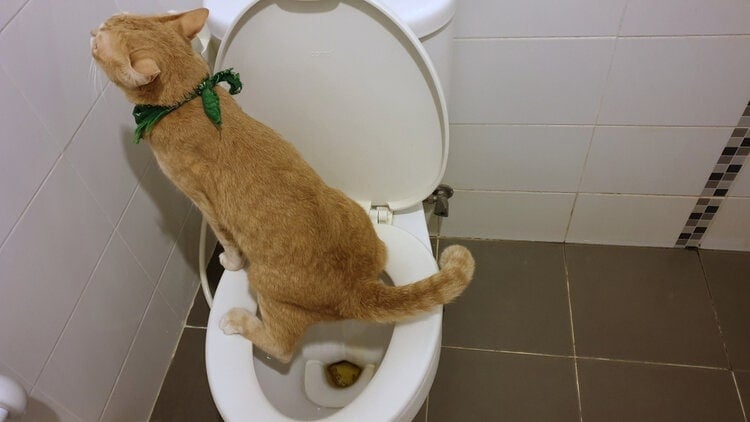Causes Why You Ought to Never Dispose of Animal Waste Down the Toilet
Causes Why You Ought to Never Dispose of Animal Waste Down the Toilet
Blog Article
The writer is making a number of good pointers on the subject of 10 Things You Should Never Flush Down The Toilet overall in this great article followed below.

When it pertains to disposing of waste, specifically animal waste, many individuals often turn to the hassle-free option of flushing it down the bathroom. Nevertheless, this apparently easy remedy can have significant consequences for the atmosphere and public health. In this post, we'll check out why flushing pet waste down the commode is a poor concept and offer alternative techniques for proper disposal.
Intro
Correct garbage disposal is vital for preserving environmental sustainability and public health. While it may appear safe to flush animal waste down the toilet, it can result in different issues, both for the atmosphere and human well-being.
Threats of flushing pet waste
Environmental influence
Purging pet waste introduces harmful germs and virus right into rivers, which can negatively affect water ecological communities. These microorganisms can infect water sources and damage aquatic life, interfering with fragile ecosystems.
Public health worries
Pet waste has dangerous microorganisms such as E. coli and Salmonella, which can pose severe health and wellness risks to humans. Flushing animal waste down the bathroom can infect water materials, bring about the spread of conditions and infections.
Alternatives to flushing
Instead of purging animal waste down the toilet, there are several alternate disposal approaches that are much more environmentally friendly and hygienic.
Composting
Composting animal waste is an eco-friendly way to deal with it. By composting, organic matter is broken down into nutrient-rich dirt, which can be utilized to feed gardens and plants.
Landfill disposal
Getting rid of animal waste in a land fill is another option. While not as eco-friendly as composting, it is a much safer alternative to flushing, as it prevents the contamination of water resources.
Family pet waste disposal systems
There are specific pet dog waste disposal systems readily available that securely and hygienically throw away animal waste. These systems usually make use of enzymes to break down waste and get rid of odors.
Steps to appropriate animal waste disposal
To guarantee correct disposal of pet waste, adhere to these actions:
Scooping and bagging waste
Regularly scoop and bag pet waste utilizing naturally degradable bags. This avoids waste from contaminating the setting.
Using assigned waste containers
Dispose of bagged animal waste in designated waste bins, such as compost containers or landfill containers. Stay clear of flushing it down the bathroom whatsoever prices.
Cleaning litter boxes and pet locations routinely
On a regular basis tidy litter boxes and pet dog areas to prevent the accumulation of waste and microorganisms. Usage pet-safe cleaning products to maintain hygiene.
Benefits of correct disposal techniques
Adopting correct disposal methods for pet waste provides a number of benefits:
Decreased environmental pollution
Correct disposal techniques decrease the risk of environmental pollution, safeguarding waterways and environments from contamination
Decreased risk of water contamination.
By staying clear of flushing animal waste down the bathroom, the risk of water contamination is dramatically minimized, protecting public health.
Improved sanitation and health
Proper disposal approaches advertise far better sanitation and hygiene, creating a safer atmosphere for both human beings and pets.
Conclusion
In conclusion, flushing pet waste down the commode is damaging to the setting and public health. By taking on alternative disposal methods and following correct waste administration practices, we can decrease the unfavorable effect of pet waste and add to a cleaner, healthier world.
What To Do With Dog Poo – The Do's And Don'ts Of Disposing Of Faeces
Dog poo bins
Some councils provide dedicated dog waste bins in popular dog-walking areas that can take dog poo that has been bagged but you can legally dispose of dog waste in any public litter bin, as long as it is securely bagged. This also applies to your wheelie bin at home.
Do not flush
Water companies do not recommend flushing dog faeces down the toilet because certain parasites can survive the water processing treatment and are potentially harmful to humans. You should also never consider flushing dog poo that has been bagged down the toilet as the bags will not break down and instead create severe blockages in the sewage system.
In the woods
The Forestry Commission promotes a ‘stick and flick’ method for dealing with waste in the woods. This means finding a stick and using it to flick any poo from off the path so that it is out of the way of other walkers. You could also bury it as long as it is not in an area where there might be livestock.
Livestock
Parasites found in dog poo can be transmitted to livestock if they inadvertently eat infected faeces that has been left on grazing land. This could result in the death of sheep or abortion in cattle so you should always make sure you pick up your dog’s waste in fields where livestock could be present.

On a regular basis tidy litter boxes and pet dog areas to prevent the accumulation of waste and microorganisms. Usage pet-safe cleaning products to maintain hygiene.
Benefits of correct disposal techniques
Adopting correct disposal methods for pet waste provides a number of benefits:
Decreased environmental pollution
Correct disposal techniques decrease the risk of environmental pollution, safeguarding waterways and environments from contamination
Decreased risk of water contamination.
By staying clear of flushing animal waste down the bathroom, the risk of water contamination is dramatically minimized, protecting public health.
Improved sanitation and health
Proper disposal approaches advertise far better sanitation and hygiene, creating a safer atmosphere for both human beings and pets.
Conclusion
In conclusion, flushing pet waste down the commode is damaging to the setting and public health. By taking on alternative disposal methods and following correct waste administration practices, we can decrease the unfavorable effect of pet waste and add to a cleaner, healthier world.
What To Do With Dog Poo – The Do's And Don'ts Of Disposing Of Faeces
Dog poo bins
Some councils provide dedicated dog waste bins in popular dog-walking areas that can take dog poo that has been bagged but you can legally dispose of dog waste in any public litter bin, as long as it is securely bagged. This also applies to your wheelie bin at home.
Do not flush
Water companies do not recommend flushing dog faeces down the toilet because certain parasites can survive the water processing treatment and are potentially harmful to humans. You should also never consider flushing dog poo that has been bagged down the toilet as the bags will not break down and instead create severe blockages in the sewage system.
In the woods
The Forestry Commission promotes a ‘stick and flick’ method for dealing with waste in the woods. This means finding a stick and using it to flick any poo from off the path so that it is out of the way of other walkers. You could also bury it as long as it is not in an area where there might be livestock.
Livestock
Parasites found in dog poo can be transmitted to livestock if they inadvertently eat infected faeces that has been left on grazing land. This could result in the death of sheep or abortion in cattle so you should always make sure you pick up your dog’s waste in fields where livestock could be present.

We were brought to that article about 4 Reasons Why Dog Poop Cleanup is Important through an associate on our other blog. Sharing is nice. Helping people is fun. Thank-you for your time invested reading it.
Click Here Report this page